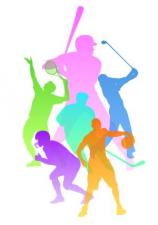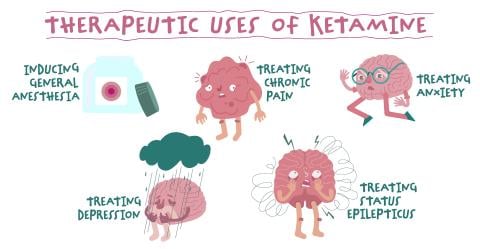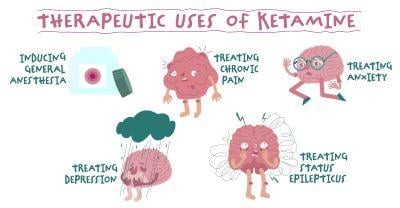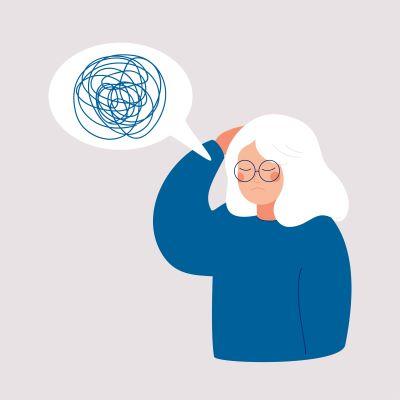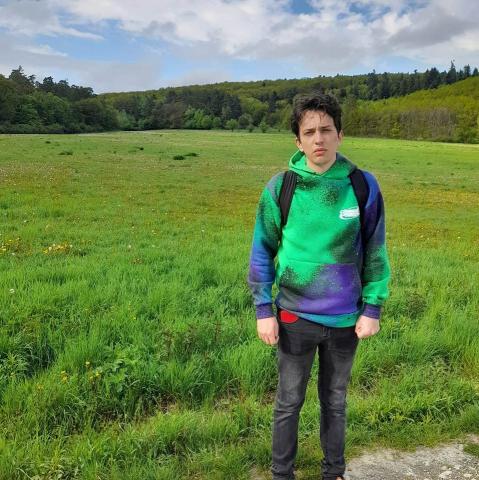Taking Safety, Defense and Prevention from the Football Field to the Mental Health Field
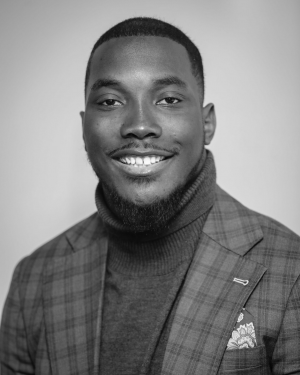 In football, I play safety. It’s a position I have taken most of my professional life but also in my journey with mental health advocacy and calling for more awareness and equity, particularly in sports. Playing safety has come to signify a stance I must hold for myself, my family, friends and colleagues, and the public at large. Most of you probably know that in football, a safety is part of the defense. Often the last line of defense, working to prevent the other team from scoring and sometimes referred to as the “deepest player” on the defensive side.
In football, I play safety. It’s a position I have taken most of my professional life but also in my journey with mental health advocacy and calling for more awareness and equity, particularly in sports. Playing safety has come to signify a stance I must hold for myself, my family, friends and colleagues, and the public at large. Most of you probably know that in football, a safety is part of the defense. Often the last line of defense, working to prevent the other team from scoring and sometimes referred to as the “deepest player” on the defensive side.
When I lost my best friend and fellow athlete to suicide, it became apparent that I had to take a deep dive into helping defend those suffering from mental health issues and conditions, especially African American youth, student athletes, and fellow players in the National Football League (NFL). The mental health wellbeing of everyone is important to me but as an athlete and NFL player, I know the toll professional sports can take on someone, and men in general are less likely to talk about their mental health or seek help, therefore we are already at a disadvantage. As a professional athlete whose livelihood basically depends on physical and mental stamina, a male athlete is at times more resistant to opening up about their mental health. But we don’t have to be.
Resistance is Not Futile
As part of the last line of defense on a team, my job is to resist. Sometimes in life we have to resist things but rejecting what our mental state is telling us should never be an option. Instead, like an athlete playing defense, we need to push back. My hope for the work I am now doing in mental health advocacy is to push back on the stigma, lack of funding, provider shortages, inequality, and social and financial injustices on Black and Brown communities when it comes to mental health treatment. But most importantly, I want to push back on anyone ever contemplating suicide or thinking of taking their life because they didn’t get the mental health help they needed.
AJ and I were close. He was the person I went to when I needed to talk, to process thoughts and feelings, and share in the things we had to overcome growing up in North Carolina. I’d known him since we were six years old, and we both had dreams of becoming professional athletes. Maybe we were dreaming the impossible, but we were doing it together. Heading into my second season in the NFL his depression became more severe. We lost him in 2017 and I haven’t stopped resisting since.
Dream the Impossible
In my advocacy work with students, I encourage them to pursue their dreams of being professional athletes, but I also get them to think about life outside of sports. They’re choosing a career that is often held to much higher standards, where expectations to excel are tough on their mental health as well as their physical. That sort of success requires a steep climb and sometimes when you fall, you fall hard. I talk about my own experience in the NFL, being injured, changing teams, and transitioning into another career. I’m honest about how things didn’t always go the way I planned and how that impacted my mental wellbeing. But the essential part I want them to understand is that just because we’re athletes and sometimes seen in the public eye as “superhuman,” we hurt just like anybody else, we have issues just like anybody else, and we suffer from mental health concerns just like anybody else.
This work sustains me and allows me to help them continue to dream, even if it wasn’t their original dream. They can have others. Dream the Impossible is a foundation I started in 2017, in honor of AJ Morrison, where we work year-round with youth throughout the Southeast and Carolinas, in different ways to highlight the importance of mental health, education, financial literacy, post-athletic career planning and the fact that there is always help and hope.
Addressing Stigma in Sports with ADAA
Through partnering with mental health organizations like NAMI, AFSP and ADAA, I hope to increase awareness of the stigma that still exists in athletics when it comes to mental health, though I do believe it is getting better. Especially in African American communities, some of us don’t want to come out publicly about mental health challenges as we can be worried about being perceived as weak or being judged. But as professional athletes united, in the NFL for example, we can be a strong force for good. With the projects we are working on now, many men are reaching out to me and talking about their mental health, and eventually they may want to share their stories. Until then, I will be there to help and support them.
The athlete world is going to continue to see a lot of changes in how they can address their mental health. It must – there are only so many highly successful professional athletes in the world and only so many who can thrive at that level and none of them are immune to mental health issues. Mental health is an important component of our overall wellbeing, no matter what our profession or background is.
I’ve been impressed with the strides the NFL has taken over the past few years. The league has made a lot of resources available and has been assisting with the emotional toll transitioning out of the game takes on us. In addition, they’re listening to us, and taking our opinions and viewpoints into consideration when thinking about how to increase mental healthcare access to athletes.
Giving Tuesday and Giving Back to Mental Health
As a member of a football team, I assess risk in the game and strategize with my teammates on how to prevent or minimize it, but also what risks we should take. A risk has to be worth the investment and investing in mental health right now is critical. Supporting ADAA’s mission is an investment that will pay many dividends in ensuring that those who are struggling can access the help they need.
If you’re trying to decide to give or not for Giving Tuesday and where and why to give– either now or at any point - consider that 1 in 5 Americans suffers from a mental health condition. This could be you or someone you love. Keep that in mind as you reach down into your pockets on Giving Tuesday.
ADAA’s Focus on Anxiety and Depression Meets a Need
ADAA’s focus on anxiety and depression is unique but also real. I’ve experienced both, my best friend had severe depression, and I don’t think there’s anyone among us who won’t have a brush with either depression or anxiety at some point in their lives. Don’t let the fight stop there. Soon enough the suffering will pass and there are plenty of people who want to help. Tell me, tell your family, tell someone. Reach out and give them the opportunity to support you. Maybe one day you will help someone else. I can guarantee there are better days ahead. Stay to see and enjoy them.
Doug Middleton won the American Foundation for Suicide Prevention 2023 Lifesaver Award!
Share Your Story and Voice and Help #breakthestigma Around Mental Health
Support ADAA's Mission - Every Gift Makes an Impact


